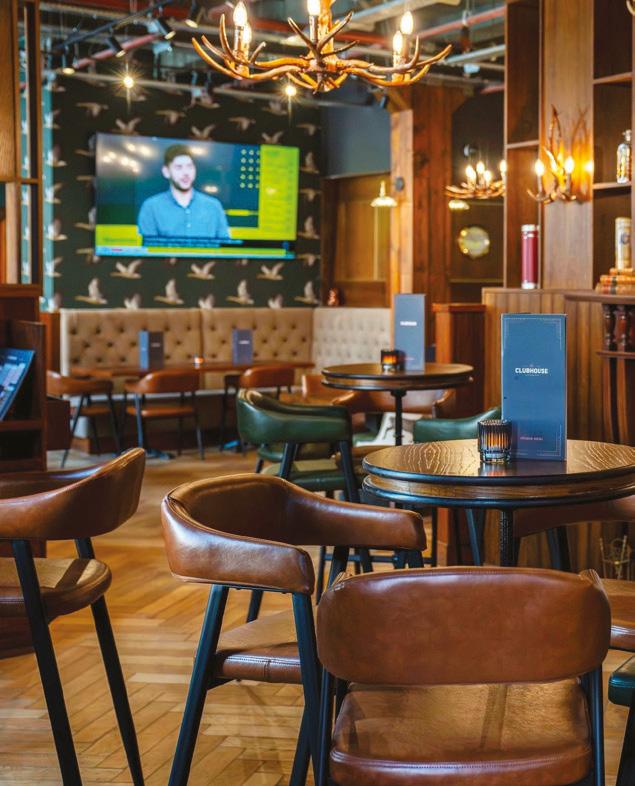








We started collecting waste over a hundred years ago. Today, we help our customers recycle, redistribute and reuse it too. It’s all part of Biffa driving the circular economy – creating opportunities for businesses and organisations to grow more sustainably, save money and leave a smaller footprint. Here’s to the next hundred years. Change begins with what iff…

Watch our film to find out more
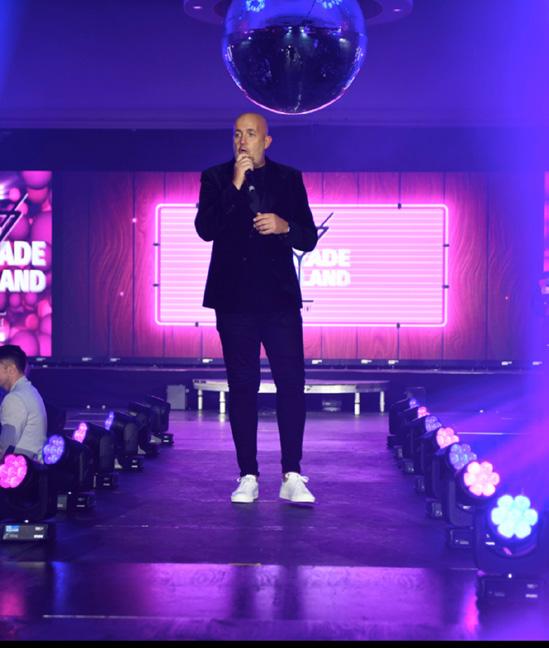
In this months edition we are very proud to announce the finalists in each of the categories for The OnTrade Awards 2025.
We have received over 33,000 nominations and the top 5 in each category have made it to the finalists. We now turn it over to the finalists to share the news with their customers , suppliers , cat , dog , budgie because the one that receives the most votes by the closing date of Friday 1st August will be the winner it’s that simple.
The winner will be announced live on stage at this years awards on Monday 11th August at the Doubletree by Hilton Glasgow Central.
You can vote by DM to our Instagram page or by emailing info@topgunmedia.co.uk with the name of your vote to win and the category.
Congratulations to all the finalists and the very best of luck.
We also have features the month from Michael Kill CEO of NTIA , Bloc Glasgow , Below Stairs Leeds and all the usual industry insights from our partners at Biffa, Maitre’D, Nationwide Energy Consultants, The Licensing Co & much much more.
We hope you enjoy and have a great July.
Justin Wingate Director at TopGunMedia
Hayley Ewing Head of Events - events@topgunmedia.co.uk
Fiona Gauld Production - info@topgunmedia.co.uk
For press enquires or advertising opportunists please call or email: Email: info@topgunmedia.co.uk Telephone: 0141 556 4111








SHAPING THE FUTURE OF THE UK’S NIGHTTIME ECONOMY: LOCAL IS THE NEW NATIONAL BLOC AN ALTERNATIVE AND ENERGETIC VENUE WITH A REAL FLAVOUR FOR MUSIC
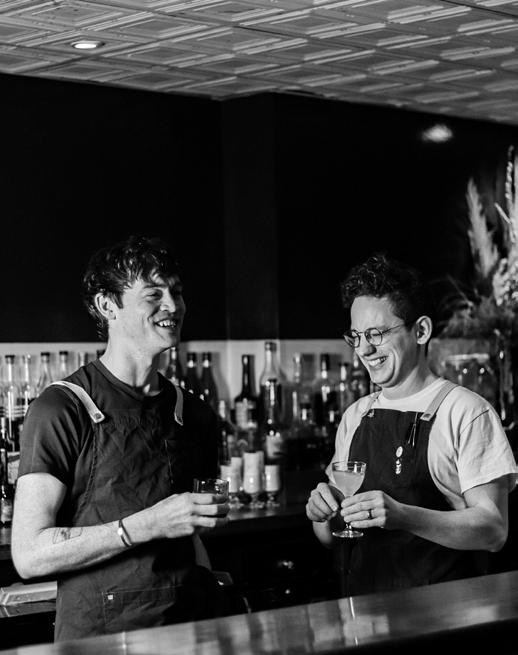
16 12 24



Allied Leisure Group Announces Partnership with Amber Beverage UK: Moskovskaya Vodka to Become House Pour Across Venues
£4 vodka mixer at Clydeside Containers signals a bold move to keep nights out affordable amid rising living costs Allied Leisure Group, the operator behind some of Glasgow’s most vibrant and independent venues including Max’s Bar, La Cheetah Club, Room 2, Mikaku, and the forthcoming Clydeside Containers, has announced a new partnership with Amber Beverage UK to make Moskovskaya Vodka its exclusive house vodka across the group.
The agreement follows a competitive tender and will see Moskovskaya Vodka served as the standard house pour across Allied’s portfolio—most notably at the highly anticipated Clydeside Containers, opening Summer
2025 on the banks of the River Clyde. As part of the announcement, the group has confirmed that a vodka mixer at Clydeside Containers will be priced at just £4.00, making it one of the most accessible options in the city for high-quality spirits.
Nathan Sparling, Director of Allied Leisure Group, said: “We’re committed to creating brilliant hospitality experiences that don’t break the bank—especially at a time when the cost of living continues to impact our community. Moskovskaya Vodka delivers the quality we expect from a house spirit, and Amber Beverage UK have been a great partner in helping us keep prices fair. Offering a £4 vodka mixer at a city-centre venue like Clydeside Containers is a statement: great nights out should still be within reach.”
The partnership reflects Allied Leisure Group’s mission to provide high-quality, independent food and drink experiences with fairness and inclusivity at the heart. Clydeside Containers, which will be home to top street food vendors, a container-built bar, and regular entertainment, is designed to bring people together in a space that feels both exciting and accessible.
In addition to Moskovskaya Vodka as the house pour, the deal will also see Rooster Rojo Mezcal introduced as the house mezcal across the group—sitting alongside Rooster Rojo Blanco Tequila on the back bar. Guests will also find premium options such as Stoli Vodka, the Stoli Flavoured Range, Ron Colon Red Banana Rum, and Arran Single Malt available throughout Allied Leisure Group’s venues, reflecting a carefully curated spirits selection that blends quality with innovation.

The much-anticipated Gael & Grain is now officially open, bringing a bold new vision to the city’s West End. Following a full venue makeover and rebrand led by Lomond Leisure Group, in collaboration with Star Pubs, this contemporary Scottish pub and dining experience offers a warm welcome steeped in heritage, flavour, and charm.
Located near Kelvingrove, Gael & Grain blends traditional homecooked favourites with playful twists - signature dishes include the standout Haggis Tikka Masala and the unforgettable Irn Bru Cheesecake. With a menu focused on
locally sourced ingredients, the venue champions the best of Scottish produce from lunch through to dinner.
With 65 covers in the main pub and a 30-seat private dining room, it’s perfect for everyday dining and special occasions alike. Guests can also book the dedicated events space, A’ Chuilidh - Gaelic for The Secret Hiding Place - or soak up the sunshine in the dog-friendly outdoor beer garden.
Entertainment also plays a starring role at Gael & Grain, with weekly comedy shows hosted in the Comedy Lounge in partnership with Good Egg Comedy, adding a vibrant cultural edge to the venue’s offering. A standout selection of Scottish whisky and gin rounds off the experience.
Now open and delighted to welcome you for lunch, dinner, and private events. Stay tuned; our much-anticipated brunch and traditional Sunday roast will be launching soon.
Sophie Mallon, Chief Marketing Officer of Lomond Leisure Group, said: “We are absolutely delighted to see this project come to fruition in conjunction with Star Pubs. Gael & Grain represents a celebration of Scottish heritage through food, drink, and music. This collaboration has allowed us to create a unique space that truly embodies the spirit of Scotland, and we can’t wait to welcome everyone to experience it.”

The University of Edinburgh’s Hospitality Collection is celebrating a series of wins at the 2025 Scottish Hotel Awards, with both The Scholar Hotel and The Scott recognised for excellence in hospitality, service and dining.
The Scholar Hotel, located in the heart of Edinburgh’s Southside, took home two of the night’s top accolades, winning Best 4 Star Hotel, East Scotland and Best Team. These awards reflect the hotel’s unwavering focus on quality service, guest experience and a commitment to excellence from its team across all departments.
Meanwhile, at The Scott, the boutique sister property within the same accommodation collection, the hotel’s dining and leadership were also honoured. Bonnar’s Restaurant
at The Scott was named Highly Recommended in the Best Hotel Restaurant category, showcasing its growing reputation for refined Scottish cuisine, crafted by head chef Pier Berretta and his passionate kitchen team.
Gavin MacLennan, Group General Manager of the University of Edinburgh Hospitality Collection, was also named Highly Recommended Best General Manager, recognising his contribution to maintaining consistently high standards and delivering exceptional guest experiences.
Of the accolades MacLennan said “It’s a real honour to be recognised in such a competitive field, and I’m incredibly proud of what we’ve achieved – not just at The Scott, but across the collection.
“For Bonnar’s to be singled out amid Edinburgh’s dynamic dining scene is a huge credit to Pier and the entire kitchen and front-of-house teams. And to see The Scholar named Best 4 Star Hotel and Best Team really speaks volumes about the calibre and commitment of our people. It’s clear we’re going from strength to strength.”
The Scottish Hotel Awards are among the most prestigious in the industry, with winners determined through a robust process including guest feedback, expert judging, and mystery visits. Recognition at this level reinforces the University of Edinburgh Hospitality Collection’s position as a leading force in Scotland’s hotel and restaurant landscape.

restoration and renovation of
The 5.5ton cupola has been hand-crafted from oak and lead, with the original striking copper weathervane at the peak, and is a significant step in the ongoing work to transform the tired old building into a live music and wedding venue – The Rotunda and Roundhouse.

The new feature is a painstaking recreation of the original feature and has taken six months to make, at a cost of £100,000.





Keith Vallance of owner developers Forrest Group said: “This is a big step forward for this massive project – and it feels like it too.
“We are creating an exciting new venue but as we always said, we’re doing so in a very respectful way, restoring the structure to enhance the beautiful old features and showcase them in the best way possible.”
The painstaking attention to detail meant it took half a year to create – and it is topped by the carefully refurbished original weather vane.
Keith said: “A huge team have made this happen today and it really does feel special to look across from The RED Sky Bar and see this beautiful new dome sitting on top of the North Rotunda building.
“There’s a lot of work still to do of course but watching on as the expert team manoeuvered this massive work of art into position felt like a key moment – and of course it is structurally important in terms of allowing other works to kick in now it’s in place.
“I hope it give people a thrill to see this striking but sympathetic element of the old building – it certainly did for us.. once it was secured in place safely!”


This month’s exclusive interview is with Michael Kill CEO of The Night Time Industries Association and VP of The International Nightlife Association who give us a unique and insightful view of the Uk Night-Time Economy.
I began my journey in nightlife not in a boardroom or behind a podium, but on the dancefloor, as a promoter and raver, deeply immersed in the transformative power of music, culture, and community. Those early years shaped me. They showed me that nightlife isn’t just a space to unwind, it’s where identities are formed, connections are made, and communities come alive. That foundation has fuelled everything I’ve done since, and continues to drive my work today.
As CEO of the Night Time Industries Association, and now as Vice President of the International Nightlife Association, I’ve had the privilege of seeing just how much this sector matters, economically, culturally, and socially. And as I prepare to represent nightlife at a global level through the United Nations, I believe we’re standing at a critical moment. One where our choices as a country and a global community will determine whether we merely survive, or truly thrive.
The truth is that nightlife is often underestimated. It’s seen as leisure, as something marginal. But in the UK alone, our night-time economy contributes £153 billion to the economy each year and employs over two million people. That makes it the country’s fifth-largest industry, larger than fashion, beauty, or the automotive sector. It’s not just a space for entertainment; it’s a driver of innovation, inclusion, and economic resilience. Nightlife helps shape cities. It brings people together. Students often choose universities not just for courses but for the culture. Fintech companies choose locations based on the energy of the local environment—and nightlife plays a huge
part in that. It’s something that influences where people want to live, work, study, and build.
One of the most common things I hear is, “Well, we’re not London or Manchester.” And that’s absolutely right. You’re not. But the aspirations are the same, growth, sustainability, investment. Whether it’s Exeter, Birmingham, Cardiff or Glasgow, every community deserves to build its own nighttime identity. Local is the new national. With devolved powers and regional mayors developing tailored strategies, we have an opportunity to let nightlife shape regional identities, drive footfall to our high streets, and bring vibrancy to towns and cities across the UK.
But we cannot ignore the enormous pressures the sector is under. Rising costs, falling footfall, and increasing regulatory constraints have created a perfect storm. Since April 1st, with the increase in the National Living Wage and Employer National Insurance contributions, businesses have had to find an estimated £30,000 to £80,000 a year in additional costs—on top of already inflated energy, supply chain, and insurance costs. We’re seeing costs rise by 30 to 40 per cent, trade decline by 15 to 20 per cent, and around seven in ten businesses either breaking even or losing money. That is simply unsustainable.
Independent businesses, so often the lifeblood of our cultural and creative identity, are shrinking fast. Over the past five years, we’ve seen a 13 per cent contraction among independents, compared to just three per cent among corporates. These venues matter. They represent diversity,
“It’s not just about venues or economies, it’s about grassroots culture, about the communities that give birth to movements.”








innovation, and the entrepreneurial spirit that makes the UK’s nightlife so unique.
And it’s not just about venues or economies, it’s about grassroots culture, about the communities that give birth to movements. The UK’s electronic music scene, forged in warehouses and backrooms, has always been more than entertainment. It’s been a space of resistance, of freedom, of innovation. Giving counterculture and underground scenes a seat at the table isn’t just a cultural imperative, it’s how we future-proof our creative ecosystems.
There are growing calls to reimagine the connection between nightlife and public infrastructure, whether it’s conversations around rave trains to re-engage nightlife culture with the transport system, or the fight to keep taxis affordable and accessible for people moving through the night safely. These are not fringe issues. They’re central to building a functioning, inclusive night-time economy.
The pandemic has also left deep social and behavioural shifts in its wake. We’ve seen rising demand for experience-led nights out, for non-alcoholic spaces, and for a greater sense of safety and meaning in nightlife. Many young people are still grappling with social anxiety, shaped by lockdown isolation and uncertainty. If we are to re-engage this generation, we must adapt.
At the same time, we face serious structural issues. We may have 24-hour licences, but we don’t have the 24-hour infrastructure to support them. Licensing and planning policy remain inconsistent and outdated. Late-night transport is unreliable or unavailable in too many regions. And issues around safety, particularly for women and marginalised communities—continue to damage public confidence.
This is why we must continue our work to promote a fair, permissive and enabling licensing platform, one that recognises nightlife as a public good. That means working hand in hand with policymakers to modernise frameworks, reduce bureaucratic burdens, and empower local authorities to support innovation while protecting communities.
But amidst all this, there are green shoots. A new wave of ‘competitive socialising’ venues is thriving, driven by experience, value for money, and creativity. We’ve seen postpandemic spend begin to recover, with 2022 figures hitting £136.5 billion, and night-time employment now surpassing 2019 levels by six per cent. Our “Let Us Dance” campaign
reached 2.8 million people—proof that nightlife is not only culturally relevant, but a powerful political voice, especially for younger generations.
Looking ahead, the vision must be one of value, inclusion and ambition. We need to adopt a European-style approach that views nightlife not as a nuisance, but as a core part of city planning, economic strategy, and cultural identity. This means embedding night-time economy advisors at both national and regional levels, reforming business rates, offering VAT relief for cultural operators, and ensuring staffing models are viable for independent venues.
We also need to build infrastructure that supports 24-hour licensing, ensuring safe, affordable, and accessible transport, managing sound responsibly, and working collaboratively with residents to reduce friction. Community safety must be everyone’s business, and we must empower people to take pride in, and responsibility for, their local nightlife spaces.
The opportunity we have now—with devolved powers and a growing recognition of the importance of place-making—is immense. Regional leaders can harness nightlife to redefine their cities and towns as cultural hotspots, economic engines, and hubs of civic pride.
And for me personally, stepping into my role as Vice President of the International Nightlife Association, and preparing to represent this industry at the United Nations, feels like the culmination of a lifelong journey. To stand on that platform and argue for nightlife as a cultural right, a driver of soft power, and a force for good, is both humbling and urgent. If we want to see a future where our cities are vibrant, inclusive and globally influential, nightlife must be at the heart of that vision.
Nightlife is a gateway. It shapes how the world sees us, our youth, our culture, our creativity. It’s a shared responsibility. Government, industry and community must work together to ensure this sector not only survives but thrives for generations to come.
I want to leave you with a very simple thought. The UK’s nighttime economy already welcomes over 300 million domestic and international tourists every year. Imagine what we could do if we were truly valued, if we had the full support of the government and the nation behind us.
The potential is there. The time is now. Let’s shape the future together.
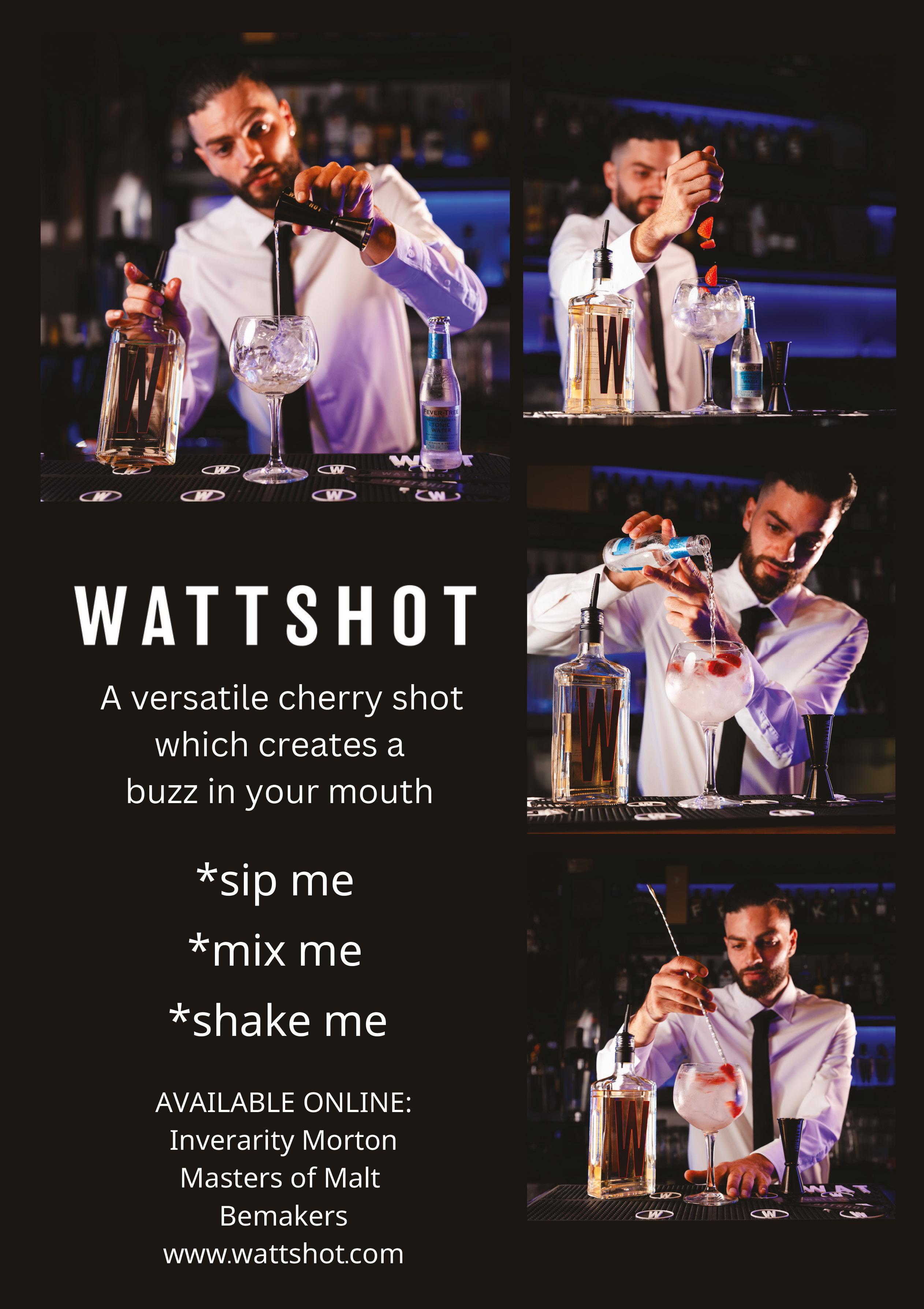

The failure of attempts to broker a ceasefire between Russia - Ukraine, the deteriorating situation in the Middle East, alongside a pause on trade tariffs have seen demand rise while supplies are stretched.

The increase in commodity costs has been driven by increased demand as the threat of a global trade war reduces. Above-average temperatures are predicted for June reducing gas for heat demand. However, global demand is expected to rise from Asian markets with summer gas for cooling demand. In addition, Europe and the UK continue to re-fill reserves, currently at 45% & 30% of capacity respectively.
While additional LNG capacity is expected later this year, mainly from the US & Canada, nothing is currently in production. The market had anticipated an end to sanctions on Russian oil and gas, adding capacity, which now seems unlikely. Supplies from Norway, Europe’s largest provider, are reducing as their summer gas field maintenance programme begins.
BUSINESS ENERGY COSTS

started to feed into contract rate rises. This trend will potentially continue unless the demand-supply strain is reduced. The factors which could quickly impact this are Russia/Ukraine and global trade. The Trump administration is the most influential element, but their future actions are unclear.
Businesses with flexible purchase strategies, need to closely monitor the market and available prices, particularly if looking to secure volume for the coming seasons.
ENERGY IMPACT ON HOSPITALITY
The prospect of higher energy costs is worrying many operators already struggling with wage & NI increases. As we move through summer, the market will price more risk into events due to the impending winter. This increased volatility can lead to prices rising quickly and by much more than they can fall.
It’s also true that the conduct of many suppliers causes significant, unexpected, costs in time and money as customers spend hours on the phone trying to resolve problems. Or have additional charges added to their bill. In some cases, falling in arrears will have the supplier switch meters to pay-as-you-go.
It is increasingly important for businesses to factor in service as well as price and to get quotations from a range of suppliers. Understandably, customers may have limited knowledge of the service levels of different suppliers.
At the same time businesses will continue to be bombarded by sales calls telling them urgent action is required, often presenting false information to secure a sale. Such contracts can leave operators paying several thousand pounds more due to the high rates agreed. Trusted partners such as Nationwide Energy can offer a market update and contract options, providing time for customers to decide. They can also advise on T&Cs from different suppliers, which may impact costs over the term.
Contact our appointment co-ordinator Darren Pridmore to arrange a face-to-face or telephone consultation.

Nationwide Energy specialises in helping hospitality businesses, from pubs to hotels, reduce energy costs and find the best utility agreement.
Expert services to minimise expenses and improve performance for your business

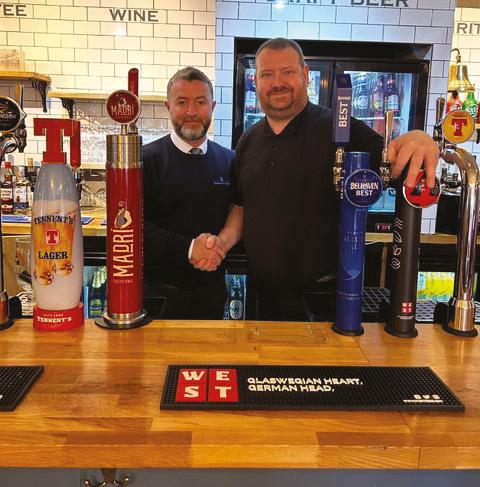
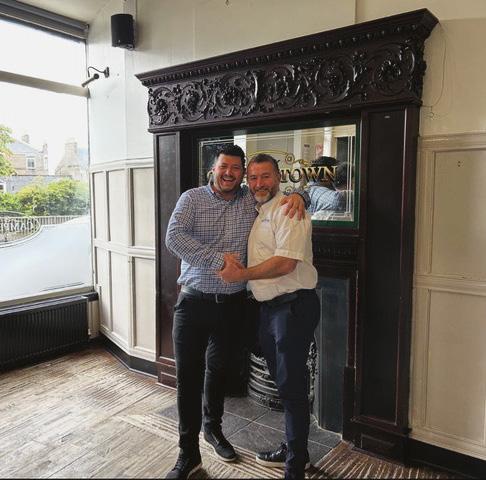



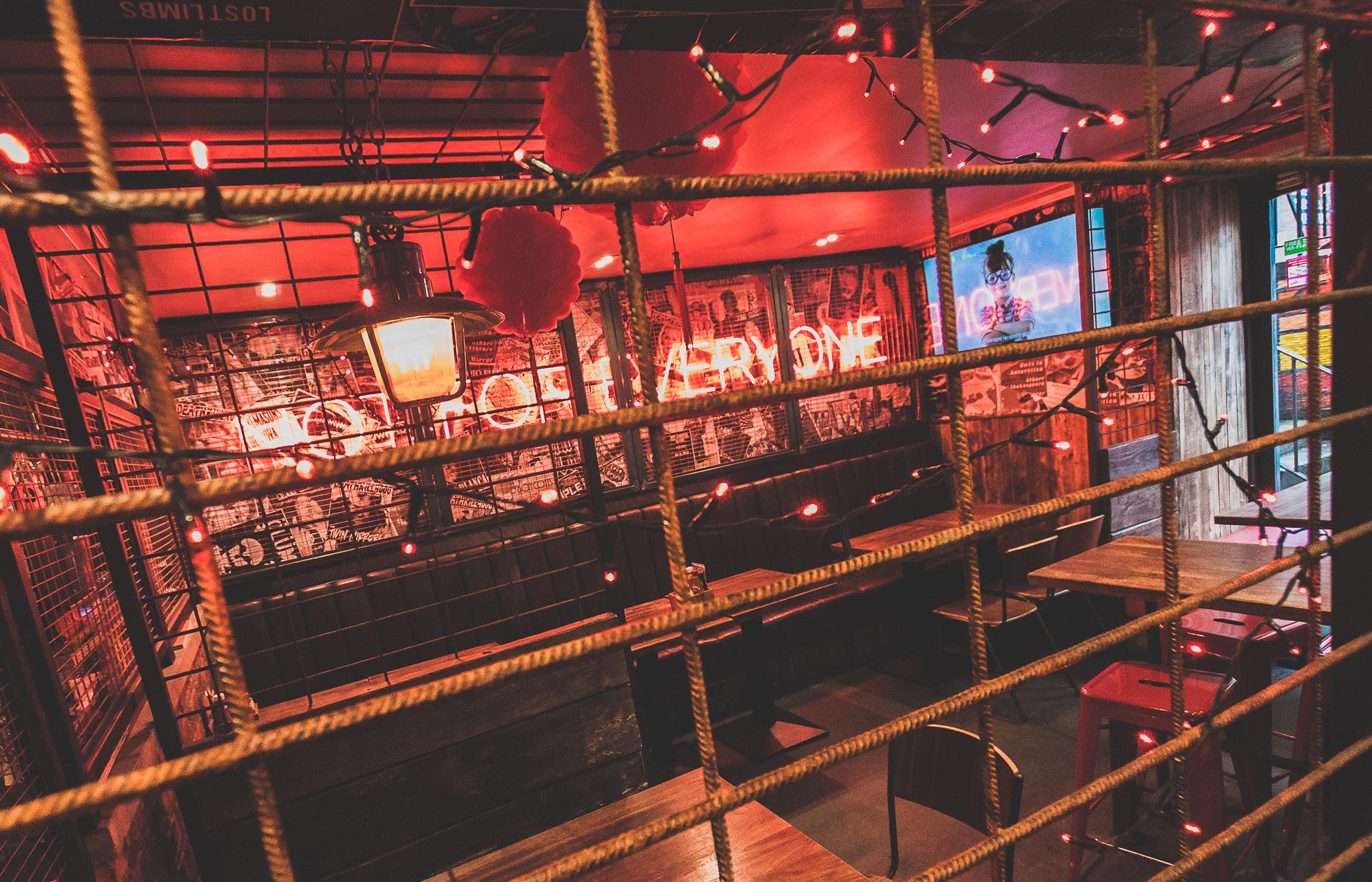
AN ALTERNATIVE AND ENERGETIC VENUE WITH A







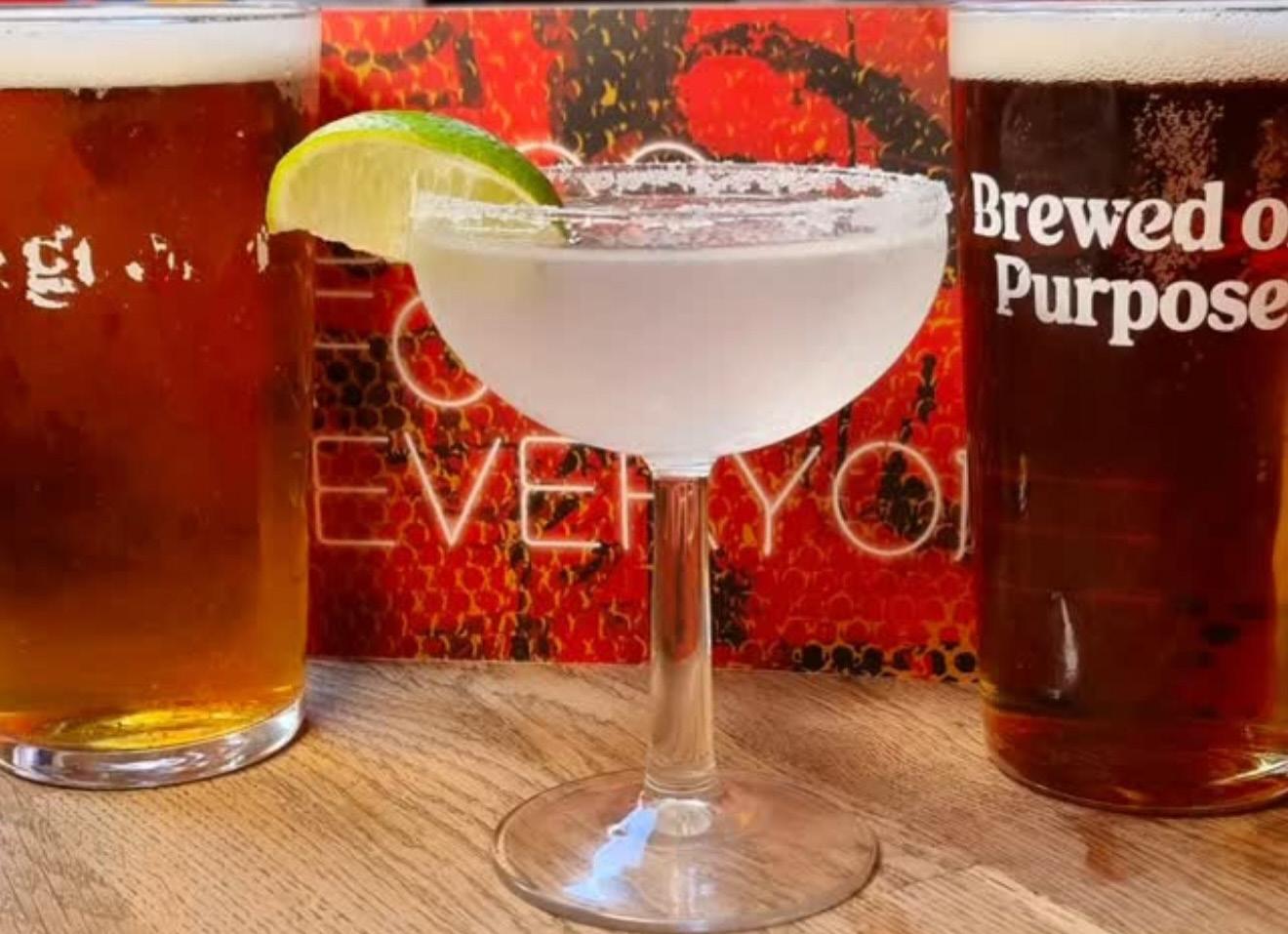
BLOC+ is a forward-thinking, independent live music bar and venue located in the heart of Glasgow. Open 7 nights a week until 3am, we offer an unbeatable mix of live bands, DJs, and eclectic club nights—all with free entry. Proudly one of Glasgow’s original dive bars, we’ve been serving the city for over 20 years with a focus on inclusivity, affordability, and a love of live music. With initiatives like “BLOC+ for Everyone,” we ensure that great nightlife, quality drinks, and delicious food remain accessible to all, no matter the economic climate.
Our authenticity and dedication to the local scene are what truly set us apart. We’re creating a space that feels real, inclusive, and vibrant. By offering free live music and club nights every night of the week, we support independent artists and give our customers something truly unique. Add to that our unbeatable drinks deals, late-night kitchen, and unpretentious atmosphere, and you’ve got a venue that feels like home for many.
Operating through shifts in the economy, covid, changing nightlife trends, and most recently, the cost of living crisis, has posed challenges over the years. But we’ve always adapted while staying true to our roots. Balancing affordability with quality, especially in tough times, takes creativity and commitment—but
it’s a challenge we embrace head-on with initiatives like “BLOC+ for Everyone.”
It’s absolutely essential. A night at BLOC+ isn’t just about having a drink—it’s about discovering a new band, catching a DJ set that surprises you, or eating a great steak for £6 while the room bustles with energy. We focus on creating moments and memories that make people want to come back again and again. In a world of copy-paste venues, a genuine experience is everything.
We’ve always believed that atmosphere plays a big role in shaping people’s nights out. Investing in our decor wasn’t about luxury—it was about creating a space that feels lived-in, raw, and real, yet still welcoming and comfortable. Our aesthetic reflects our values: DIY spirit, underground culture, and an open door to all.
Our kitchen serves up standout food at unbeatable prices—think daily deals like our £6 steaks, £4 burgers, and creative specials. Behind the bar, we’ve got £3 pints and £3 spirits & dash, as well as a range of cocktails and craft beers. Coming up, we’ve got an exciting lineup of local and touring acts, plus themed club nights that dive into everything from indie sleaze to jungle and electro. And remember—every event is free entry. Always open til 3am.


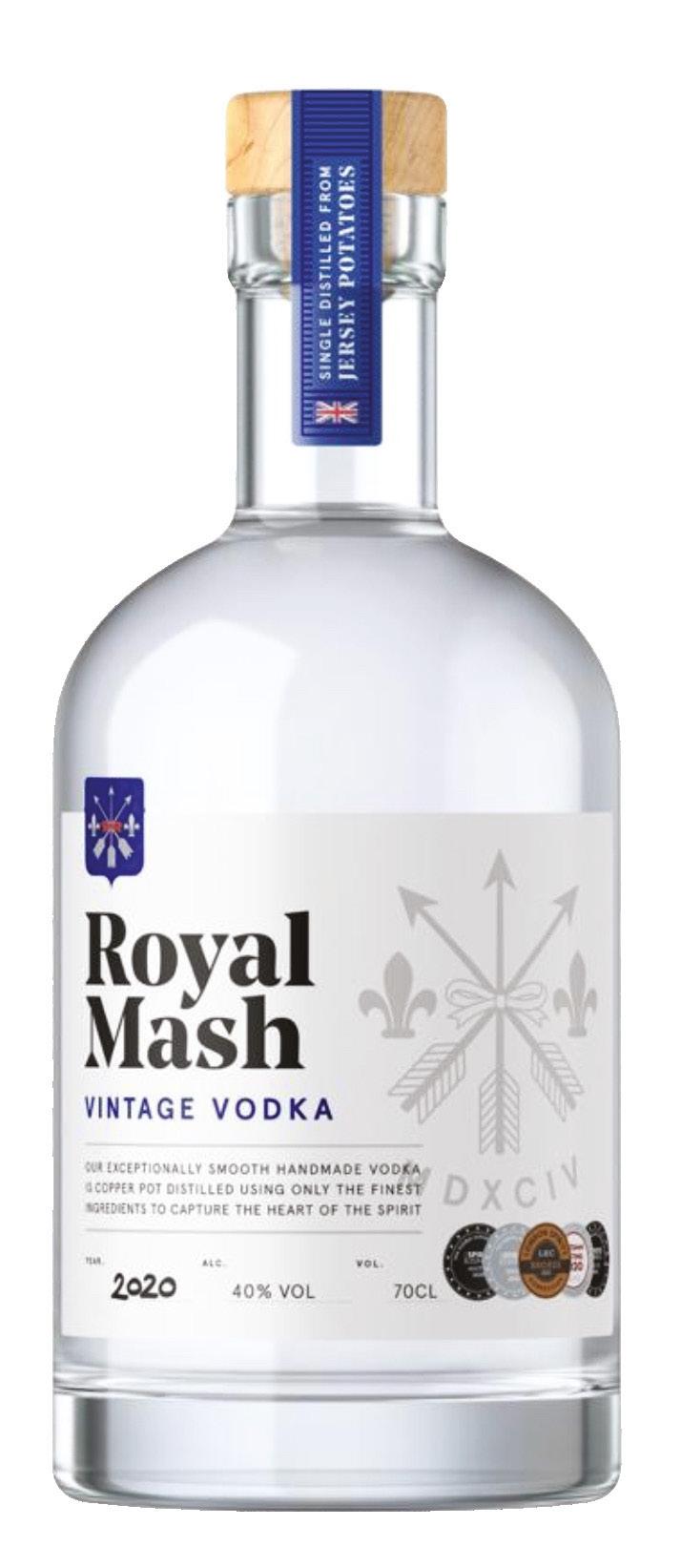



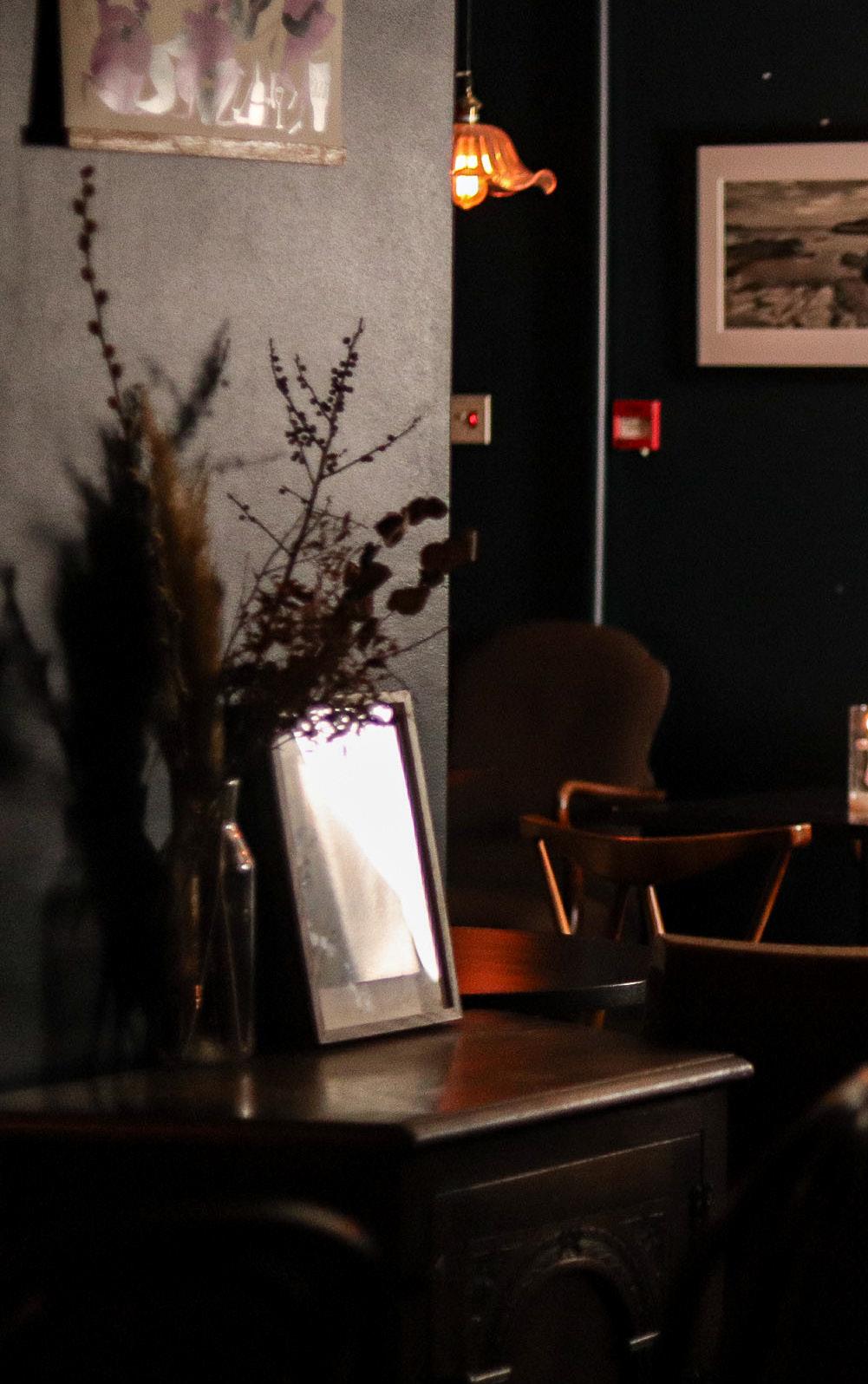
We take a look at a venue voted in the top 50 bars in the uk and a must visit in Leeds for it’s atmosphere, cocktails and customer experience.
Below Stairs opened in December 2017 with an idea of being a cocktail pub, able to offer really standout cocktails but also a wide selection of beers and wines. Basically having a bit of something for everyone. As time went on, it became very clear that what people came to us for was the cocktails. We always wanted the cocktails to be evocative; whether that’s trying to capture a particular moment or really encapsulate a specific idea, we want our guests to engage with the experience. We like to think that our drinks tell a story and as long as you can understand the story, you don’t need to have a PhD in mixology to find a drink that you’ll like.
Since day one, our biggest focus has been on guest interaction and service. You might go to a bar once because you’ve heard they do great drinks but you keep going back because the service was amazing and it was a space that you really wanted to be in.
The order of service here can be pretty intense for new staff, we want to make sure that from the moment they walk through the door, our guests are taken care of. We’ve taken a few cues from fine dining service but stripped away as much of the pretense as we possibly can. Each guest gets taken from door to table, given an intro to the bar and our current menu concept as well as a little welcome drink to help them settle in.
Everything we do is centred around making sure people feel comfortable in the space; our drinks can be a little bit intimidating with lots of esoteric ingredients and niche techniques so it’s very important that the service helps to break down that barrier.
Our first year was pretty rough, a series of delays meant that we opened up the week before Christmas which was less than ideal. After such a rocky start, going into Summer 2018 as a basement bar whilst England were doing well at

the World Cup for once was another spell of bad luck. Like all underground venues, any good weather or major sporting event leaves us a little bare to be honest. It wasn’t really until Autumn 2019 when we’d been around for nearly 2 years that it felt like we were up and running.
Then 2020 hit and the whole world went down the drain with COVID and the mess that surrounded all of that. The pandemic, the lockdowns and constantly shifting restrictions that went with it were a brutal time for the industry as a whole. It feels a bit redundant to talk about all that stuff, the industry is still feeling the shockwaves from it and the conversation hasn’t really stopped. For us specifically, we got broken into twice during the first week of the first lockdown which was pretty heartbreaking. There were a few bottlings that got taken which were pretty unique and had more sentimental than resale value. As a fairly spaced out table service venue, we didn’t have to make too many alterations to the site itself in order to comply with the restrictions but as with everywhere else, trying to get the general public to adhere to them was a nightmare. Sadly, our sister site in Buxton (Monk) was less suited to the new environment and we had to close it down.

The experience is what people remember. You can go almost anywhere and get a delicious drink but finding somewhere that provides something beyond that or a place that feels special is a lot trickier. This doesn’t necessarily mean sparklers and dry ice, good guest experience can just be about how the staff treated them, the sort of music that was playing, the lighting, the smell of the venue. All these things






stick in people’s memories more than how their margarita tasted.
The look of a bar has a big impact on guest expectation, that first impression as you walk into a bar often informs the rest of your experience. We wanted to make sure that it was as relaxing as possible, we even consulted a behavioural psychologist during the fit out. We’re surrounded by offices and the venue itself used to be one so it was really important that the space didn’t feel like you were still at work. This came down to things like making sure the furniture was at a certain height so that it wasn’t the same as sitting down at your desk.
I’ve got a new menu out this year which we’re calling Small Joys. It’s all about the little moments that put a smile on your face: a freshly made bed with clean linens, licking the batter of a spoon when you’re making a cake, a simple slice of white bread with a thick layer of butter on it. We got suggestions through our Instagram which was really fun, there were definitely some curveball ideas that definitely got us thinking.
Apart from that, we’re trying to be a bit more focused with the events this year. 2024 was a bit of a mad whirlwind of takeovers and supperclubs which was amazing but a lot so we’re hoping to tone it down a bit. Our first stop of the year is 8th April for a takeover at Dragonfly as part of the Edinburgh Bar Show, really excited for this one. The cocktail scene in Scotland is phenomenal and being in town for the bar show is going to be fantastic.


Since our humble beginnings nearly 70 years ago when the Company was founded by Bobby Lynas, Lynas Foodservice has been dedicated to one word, Service.
The aim is simple, to serve our customer with the best product and the best service we can provide.
We deliver to over 5,000 independant and chain customers every week throughout Ireland and Scotland. Our customers come from right across the catering spectrum so with our extensive range we will have the right product to suit your needs and your business.
Contact us today to find out more and arrange a visit with one of our experienced team.
We are here for you.


AI, Cyber attacks on our high street stores stopping online order and hackers playing havoc with our banking systems. Where will technology and the digital age take us now? For the licensed and hospitality sectors, the next challenge, source of cost and new training requirements could be the introduction of Digital ID.
Everyone of a certain age knows that they need to carry ID. For those involved in the hospitality and licensed trade, checking ID, and spotting fake or borrowed ID, has turned into a black art. But what does the introduction of a system of digital ID mean for the licensed trade throughout England, Wales and Scotland. Read on to find out what the issues are and what action might be needed.
The Licensing Act 2003, referred to as the ‘2003 Act’ regulates the sale and supply of alcohol in England and Wales. The Act is underpinned by four licensing objectives, one of which is “protection of children from harm”. This extends not only to children physically being on licensed premises but also to preventing consumption of alcohol by children on licensed premises, including the illegal sale of alcohol to under-18-year-olds. The 2003 Act contains specific offences relating to admitting and serving children and licensing authorities can impose further conditions and restrictions on the presence of children in premises. Premises can also have their own policies to help guide their teams on how to manage children in their licensed premises.
Where in England and Wales there are specific offences re access for children to “relevant premises”, being those used exclusively or mainly for the supply of alcohol, if they
are not accompanied by an adult and restrictions re under 16’s being on premises between the hours of midnight and 5am, in Scotland licensing is governed by the Licensing (Scotland) Act 2005, as amended, and referred to as the ‘2005 Act’. Children are defined in this legislation as being 0 to 15 years and young persons are defined as 16 and 17 years old. The Licensing objective relating to protection of children from harm in Scotland originally only referred to children, but was then amended to include young persons too. In Scottish premises licences, the part of the licence called the Operating plan details the areas where children and young persons can access and outlines when they need to be accompanied by an adult, what times they can be in premises during and for what purposes, for example taking a meal, functions and similar.
There are also various offences mirrored throughout the legislation in England, Wales and Scotland, in respect of prohibition on the sae and supply of alcohol to under 18’s.
All of this takes us back to the question of age and from there, the matter of identifying the age of someone seeking to purchase or be supplied alcohol.
One of the 2003 Act’s mandatory licensing conditions requires those selling or supplying alcohol to have an age verification policy in place. Equally, Scottish premises
ADVICE ON PERSONAL AND PREMISES LICENCES
DRAFTING AND LODGING APPLICATIONS
ATTENDANCE AT CONTENTIOUS HEARINGS
ADVICE ON BUSINESS STRUCTURES FOR LICENSED PREMISES
TRAINING AND MANAGEMENT OF STAFF PERSONAL LICENCES

licences have a similar provision in the mandatory conditions, and requires anyone who appears to be under the age of 25 to be identified by suitable identification and as long as they can evidence they are 18 or over, alcohol can be sold to them.
The identification should have a photograph of the person seeking to purchase alcohol, their date of birth and either a holographic mark, or an ultraviolet feature. Forms of acceptable ID are specified. The designated premises supervisor in England and Wales or the Designated premises manager in Scotland (the person with day-today responsibility for the running of the business) has responsibility for ensuring that the sale of alcohol is in accordance with the age verification requirements in the conditions, as does the premises licence holder and there is an obligation on staff to ensure age verification requirements are being adhered to. Acceptable forms of identification include: photo card driving licences; passports; military identification; and proof of age cards bearing the PASS hologram. Other forms of identification that include the required features are also acceptable.
But the simple production of a physical piece of ID may no longer be the norm for our UK wide licensed premises, and in other areas such as cinemas, insurance and so on. The UK Government has made it clear it is keen to enable proof of age to be achieved without having to present physical documents. There are various government departments focusing on this and the Data (Use and Access) Bill includes provisions which will establish digital ID’s, but is not intending to make them obligatory meaning traditional physical ID documents can still be used.

On 25 January 2024, the UK Government launched a consultation on the use of digital identities and the technology involved in establishing if someone is old enough to buy alcohol. The consultation closed on 30 March 2024 and it focussed on three options for licensed trade operators:





1. no changes and continue to accept only physical identity documents currently acceptable for age verification for alcohol sales;
2. as well as physical identity documents, also allow digital identity options to be used for age verification for alcohol sales; or
3. as well as physical identity documents, allow age estimation and other technology to be used for age verification for alcohol sales.
But what is ‘digital ID’? Scanning your passport to get through airport security is one example many people already use. One way to look at digital ID is as a way for ID to be checked without a person having to actually look at a physical document. And what does that mean for the UK’s licensed trade - will we see scanners at premises entrance and on bar counters?
The UK Government has introduced the ‘Trust Framework’ for those who can accept digital ID which allows them to be certified independently. This gives users of the service reassurance they can trust the bar or premises to deal with the data correctly. Those certified would have a ‘Trust Mark’ in the premises which can be checked on the Government’s register. Could we see licensing authorities throughout the UK requiring, or encouraging, operators to undertake this certification. And what will the cost of the certification and the equipment needed to read digital ID likely be. Will there be grants or other allowance put in place for operators.
Much of this in unknown and up in the air. If operators want details or help in becoming certified, please contact Joanna – details below. Much of this will become clearer when the Data (Use and Access) Bill progresses. For more information on how this will be dealt with and introduced for the licensed trade, what measures will be put in place to assist the trade with this rollout of digital ID, , details as the bill progresses and also further advice, please contact Joanna Millar, The Licensing Company; info@thelicensing. company or on 07747 653417.



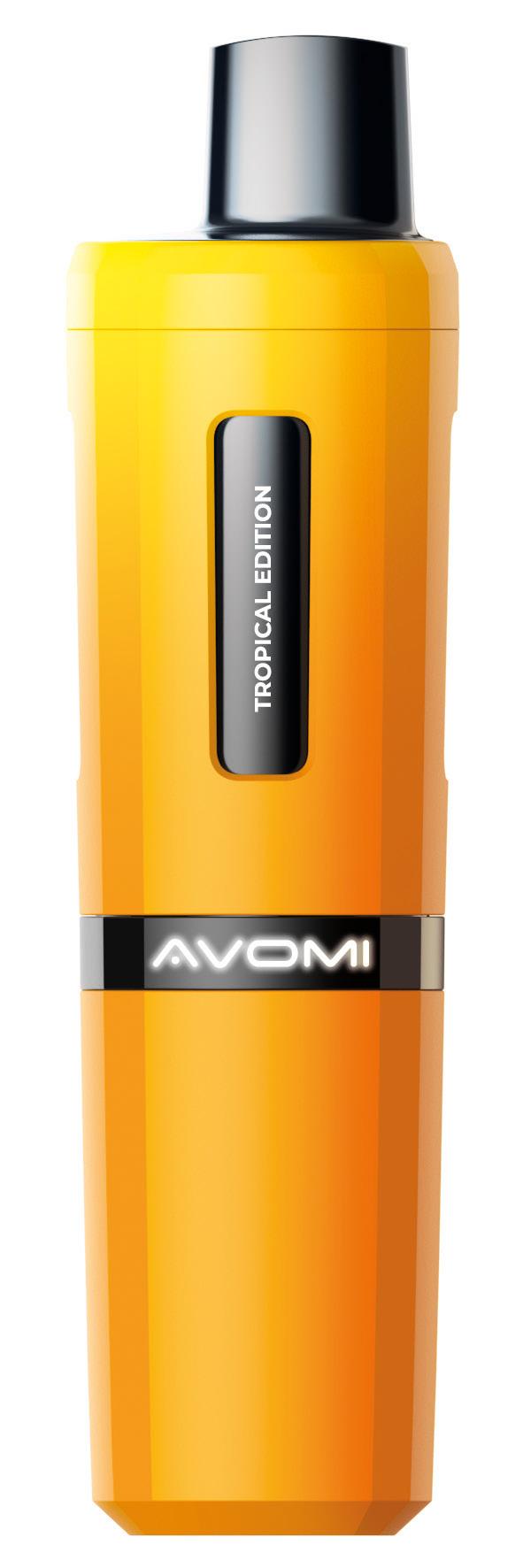

























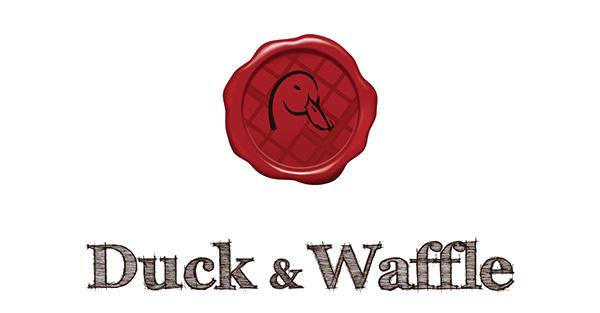









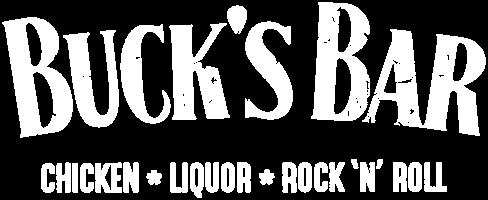



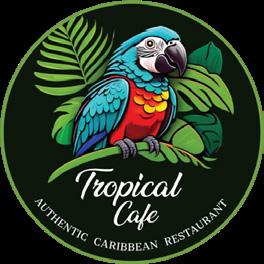




















in association with



Prominent figures from Scotland’s hospitality sector met with Scottish Labour Leader Anas Sarwar to discuss the urgent challenges facing the industry, with a particular focus on VAT, business rates, and opportunities for deeper collaboration between government and business.
The roundtable brought together senior voices from across the sector, including:
Sacha Lord, Chair of the Night Time Industries Association
• Stephen Montgomery, Spokesperson for the Scottish Hospitality Group
• Louise MacLean, Business Development Director of Signature Group
• Donald MacLeod MBE, leading nightclub and live entertainment operator
• Michael Bergson, Owner of Bucks Bar Group
• Justin Wingate, Head of OnTrade Magazine
• Roddy Smith, CEO of Essential Edinburgh
The discussions focused on the financial pressures facing hospitality businesses, particularly the burden of VAT and business rates, which many argued are key areas when support for the industry are urgently needed to support in the current economic environment to help the industry get on its feet and grow as a major contributor to the economy . Anas Sarwar listened to first-hand accounts of the sector’s post-pandemic recovery struggles, ongoing cost pressures, and the crucial role hospitality plays in Scotland & the wider Uk economy.
“This meeting was a clear signal that the hospitality industry is united across all areas in it’s call for reform,” said Justin Wingate . “VAT and business rates in their current form are clear areas that support can be provided in for many
operators. It’s time for government and industry to work together in a more meaningful way.”
The Scottish Labour leader was presented with a ”Blueprint of success “ by the group and explained by Sacha Lord that was utilised in Manchester’s undoubted success in becoming a city that has thrived using hospitality & the night time economy as a cornerstone of growth in the economy.
Sacha Lord commented ‘“ The meeting was very productive with a number of very focused and passionate people around the table about improving things for the better across the industry and a “ the time is now “ attitude is a very positive thing to see.
The Scottish Labour leader expressed his support for the industry & commented ,” The hospitality industry is key to a thriving economy in Scotland and the rest of the Uk engaging with senior people in the industry like we have in this meeting is vital for government and local authorities to take much needed action now “
As yet requests for the group to meet with senior MSPs from other parties including Scottish Government have received little to no response, however it was notable that a request to discuss the blueprint and it’s success in Manchester was flatly refused by Glasgow City Council leader Susan Aitken with the council leader publicly stating “ Glasgow doesn’t need to seek advice or review its strategies as we are performing very well as we are “.
Many people in the city however seem to strongly disagree.

MINIMALIST BY DESIGN. FOR MOVING WITH THE TIMES.
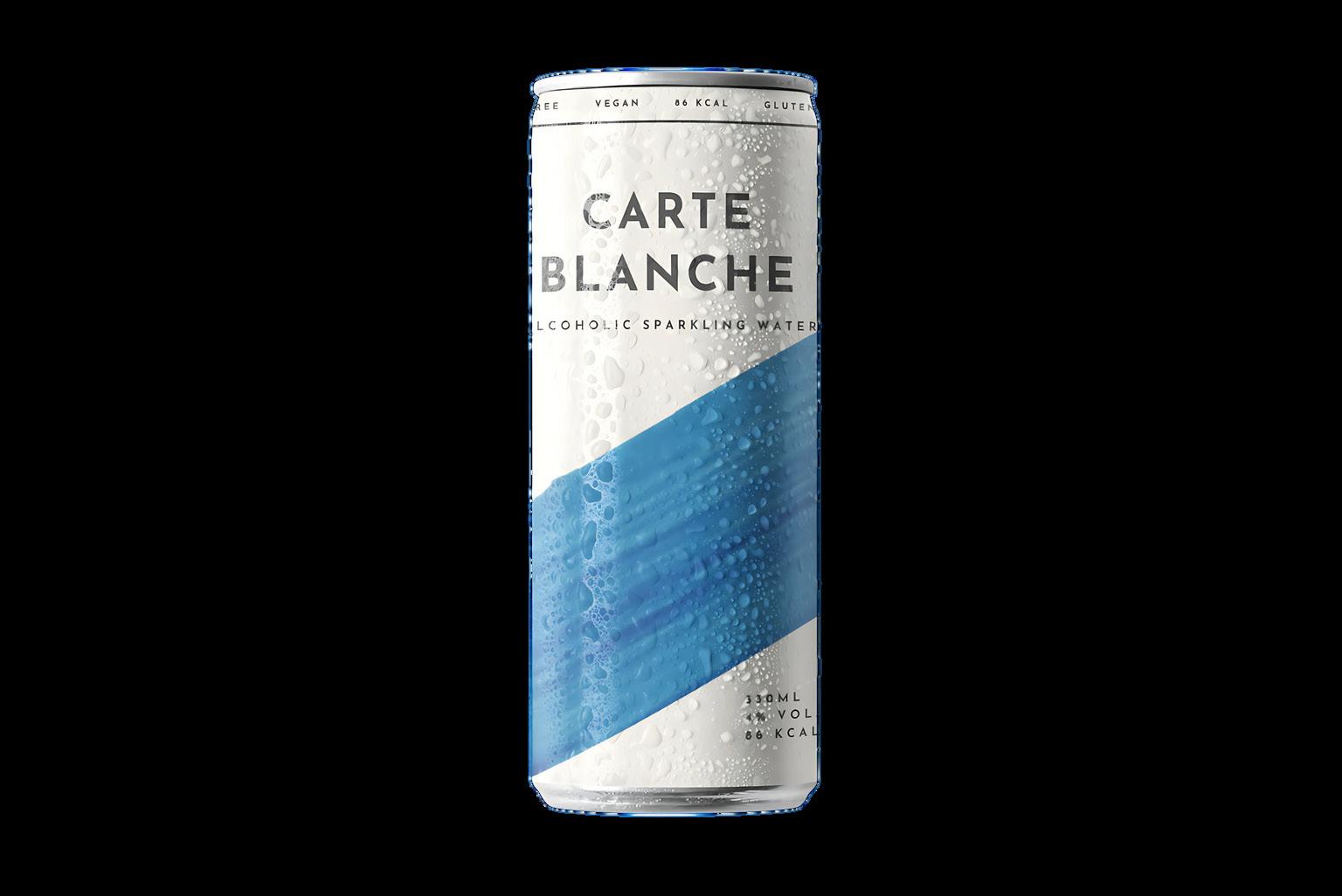










Are you looking for an adrenaline rush while raising money for cancer patients and their families in the process?
This is 100ft high, adrenaline adventure will be the perfect challenge for you! So what are you waiting for? Let's get together and Zipslide the Clyde!
Entry: £20pp
Min Sponsorship: £150
restrictions apply
Embark on an exhilarating climb to the horse’s mouth via a network of cables, ladders and suspended platforms. Then, feel the thrill as you descend with a free-hanging abseil or the breath taking quick flight rope drop!
Entry: £30pp
Min Sponsorship: £250
restrictions apply
17th oct

Please contact corporate@beatsoncancercharity.org or telephone: 0141 212 0505 for further details and thank you for your support.





Today’s clientele expects speed, accuracy and convenience. Mobile tablets connected to your Maitre’D ePOS system equip your staff with efficient ordering capabilities, allowing seamless interactions from greeting to payment. By eliminating traditional bottlenecks such as order errors and service delays, these tablets significantly boost customer satisfaction and encourage repeat visits.
Summer in the UK hospitality industry is synonymous with lively terraces, vibrant beer gardens and crowded patios. As we enter the prime outdoor season, establishments that strategically adapt their service offerings are poised to capitalise significantly. Central to this transformation is leveraging modern mobile technology alongside robust ePOS solutions, enhancing both guest experiences and operational efficiency.
Outdoor seating becomes prime real estate as temperatures rise, attracting patrons seeking inviting, efficient, and enjoyable outdoor experiences. A streamlined approach, combining reliable ePOS terminals with mobile technology like Maitre’D’s tablets, is essential for maximising revenue opportunities during this busy period.
Just imagine a sunny beer garden where staff effortlessly take orders from guests using intuitive tablets. Drinks arrive swiftly, orders are accurate and payments are frictionless. Such smooth experiences not only heighten guest satisfaction but also stimulate positive word-of-mouth, drawing additional traffic to your establishment.
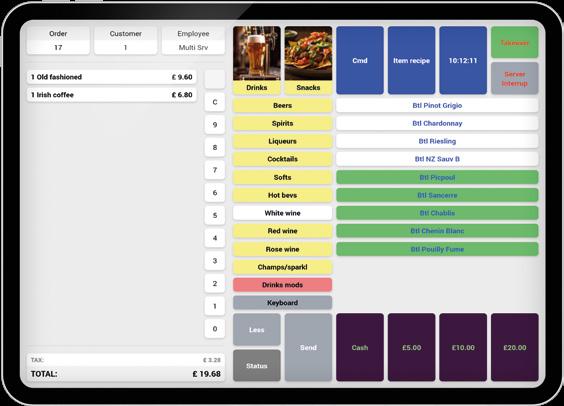

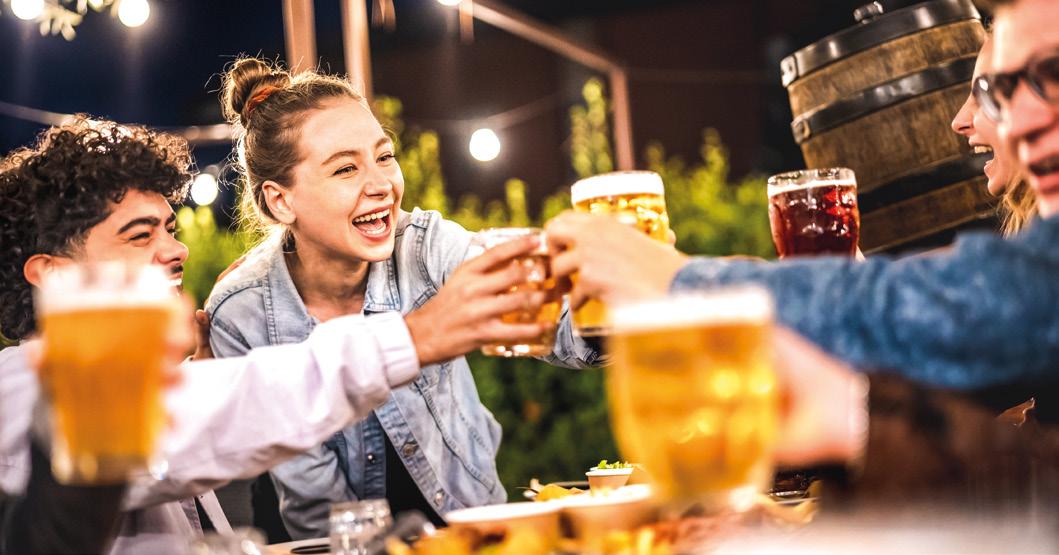
Mobile ordering with tablets integrated into your Maitre’D ePOS system greatly enhances outdoor hospitality operations. As servers input orders tableside, they’re transmitted instantly via Wi-Fi to the kitchen and the bar, significantly reducing delays and eliminating manual entry errors.
Real-time menu updates allow your team to instantly communicate availability changes, specials or seasonal offerings directly to tablets, so that staff have accurate, up-to-date information at their fingertips.

The flexibility of the Maitre’D platform enables you to deploy robust Windows-based tablets tailored to your specific outdoor environment. Whether your outdoor area requires rugged, water-resistant tablets for exposure to weather or more compact, handheld terminals for high mobility, Maitre’D provides hardware solutions adaptable to various operational needs.
Ultimately, these advanced capabilities translate into faster service, increased table turnover and greater guest satisfaction, directly maximising revenue potential, especially during critical summer months when your outdoor spaces experience their highest demand.
Managing an outdoor space doesn’t have to strain resources. Tablets integrated with Maitre’D ePOS enable real-time monitoring of operational
metrics, from labour costs to inventory management. By automating key processes such as order routing, inventory updates and staff deployment, establishments can maintain control over operational expenses without compromising service quality. Moreover, the Maitre’D dashboard offers valuable analytics, helping managers anticipate busy periods and adjust staffing and inventory levels accordingly.
Consistency is essential. With Maitre’D’s integrated ePOS system and mobile tablet technology, indoor dining areas and outdoor spaces are seamlessly connected. Orders from terraces and beer gardens integrate effortlessly with kitchen and bar operations, maintaining consistent quality and pace of service across your entire venue.
As you prepare your outdoor venues for the bustling summer season, equipping your team with the Maitre’D mobile ePOS solutions is more than an operational choice. It’s a strategic investment. Enhance guest experiences, streamline service, control operational costs and turn your terraces and beer gardens into powerful profit centres.
Discover how Maitre’D can drive your summer success. Visit us online or speak to one of our product experts today.
To learn more about our comprehensive POS and payment solutions, visit our website today:


